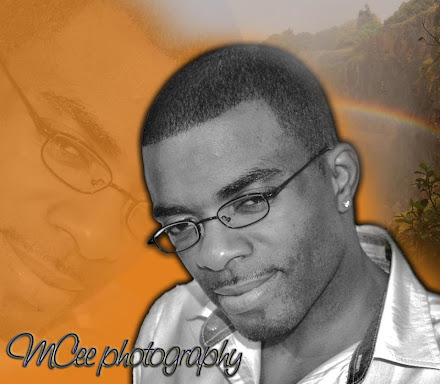The language tragedy: By Michael Chipato
Many sociolinguists have emphasized on how language inevitably carries the core values of any given culture. In other words when one chooses a language they also inevitably choose a culture. I wish to stir some turbulent waters in the language debate and at the same time rekindle the love for vernacular languages amongst Zimbabweans both at home and in the Diasporas.
For me to use the English language in this article appears to be the first contradiction as I will be encouraging both the young and old to embrace their first languages as they are part and parcel of an individual’s identity. Ngugi Wa’Thiongo argues that within the context of the colonial experience, ‘Speaking and writing in the language of the colonizers will naturally be different than in the language one speaks while at play or with one's family. In addition, the language of the colonizer is often a truly foreign one: segments of society understand it badly, if at all, and so certain audiences can not be reached by works in these imposed languages’. The essence of language is communication and the moment a child from Zimbabwe fails to communicate with Grandmother when he /she goes kumusha, becomes tragic.
A lot has been written in literature and for theatre about the loss of culture as individuals half digestedly embrace foreign languages and their respective cultures. There is nothing wrong with the use of English and the respective culture, but there is a sad tragedy in the way things are today where a 10 year old boy who arrived in the UK six months back miraculously loses his native language to the point where it becomes extinct even in the home. The problem appears to be the parents who are often heard saying ‘Tee haachagoni Shona uyo…’ (Tee can’t speak Shona anymore)
A domestic social context that embraces the excessive use of other people’s languages at the expense of one’s own is essentially destructive. Language has the potential to take us further from ourselves to other selves, from our world to other worlds. This is the tragedy of the migrant communities across the globe. What communities lack is the ability to hold on to that which defines them.
Speaking during a telephone interview Mbuya Zvabva said that she was nauseated by the extent of irresponsible cultural neglect in parents who do not make an effort to teach their children their mother languages at home, let alone use them for everyday commmunication. ‘Pavanotofonera handivanwzisisi, pavakauya kumusha handina kumbomunzwa ini, aingotaura chingezi chete. Baba vake vakati haachagoni Shona. Zvakandirwadza kutadza kutaura nemuzukuru wangu nepamusana pekusagona Shona kwake , iye ari MuShona’. This social lamentation by Mbuya is just the tip of the iceberg; there are endless examples that are likely ringing bells in your mind as you read this.
Even in the wake of diffusionism and acculturation as inevitable in the context of the world we live in as a global village, it remains imperative for all generations to hold onto the core values of a people, their language, identity and this inevitably builds dignity and respect in the communities we live in. The danger with half- digested consumption of foreign culture, language, value systems and other anthropological concepts is that when you make a mistake it exposes and ridicules you more. Alfred Masayire from Luton said that, ‘The best thing to recognize you as somebody from somewhere is your language, how would you identify yourself as Ndebele outside the linguistic framework?’
Sandra Brown from Birmingham blasted Africans who have no pride in their identity and language saying that ‘I am angered by Africans who promote cultural loss by not promoting the use of vernacular languages in the home’. There is no doubt that English and other languages are key in business and commerce, but English is not a value asset for cultural sustenance.
Those who have disconnected themselves and family from VanaMbuya ekhaya, they become fixed in the no-mans zone and both ends of the cultural battlefield may fail to call you their own.
Subscribe to:
Post Comments (Atom)
Michael Chipato

Media and Social Consultant
Michael delivering a paper- Journalism in a Dictatorship

Michael Chipato adresses EU journalists
Tuku meets Mike in Birmingham 2008

Bvuma!
Backing vocalist for Alick Macheso in Liecester with Mike

Afrobeat at its Best!
Macheso crew in Liecester 2008

Lord Mayor, Jeff and Tawanda
Exhibition Official launch , Birmingham 08
Michael and Chiwoniso Maraire , an exiled musician. Now lives in the USA
Mike and Chioneso Maraire in Birmingham 08
About Me

- Michael Chipato
- Birmingham, West Midlands, United Kingdom
- Michael Chipato is a social and development scientist currently living in Birmingham.Over the years issues pertaining social inequalities, dictatorship, political oppression and gender disparities have been his research focus.As an artist, journalist and academic Michael's philosophy of life is greatly influenced by Léopold Sédar Senghor (9 October 1906 – 20 December 2001) ... a Senegalese poet, politician, and cultural theorist who served as the first president of Senegal (1960–1980). Senghor was the first African to sit as a member of the Académie française. He was also the founder of the political party called the Senegalese Democratic Bloc. He is regarded by many as one of the most important African intellectuals of the 20th century. Senghor created the concept of Négritude, an important intellectual movement that sought to assert and to valorize what they believed to be distinctive African characteristics, values, and aesthetics..He does not condone oppression and violence in any shape or form.
Michael Chipato
Michael interviews Lord Mayor in Birmingham
What else do you want to see on my blog
Zimbabweans hang in the balance


No comments:
Post a Comment